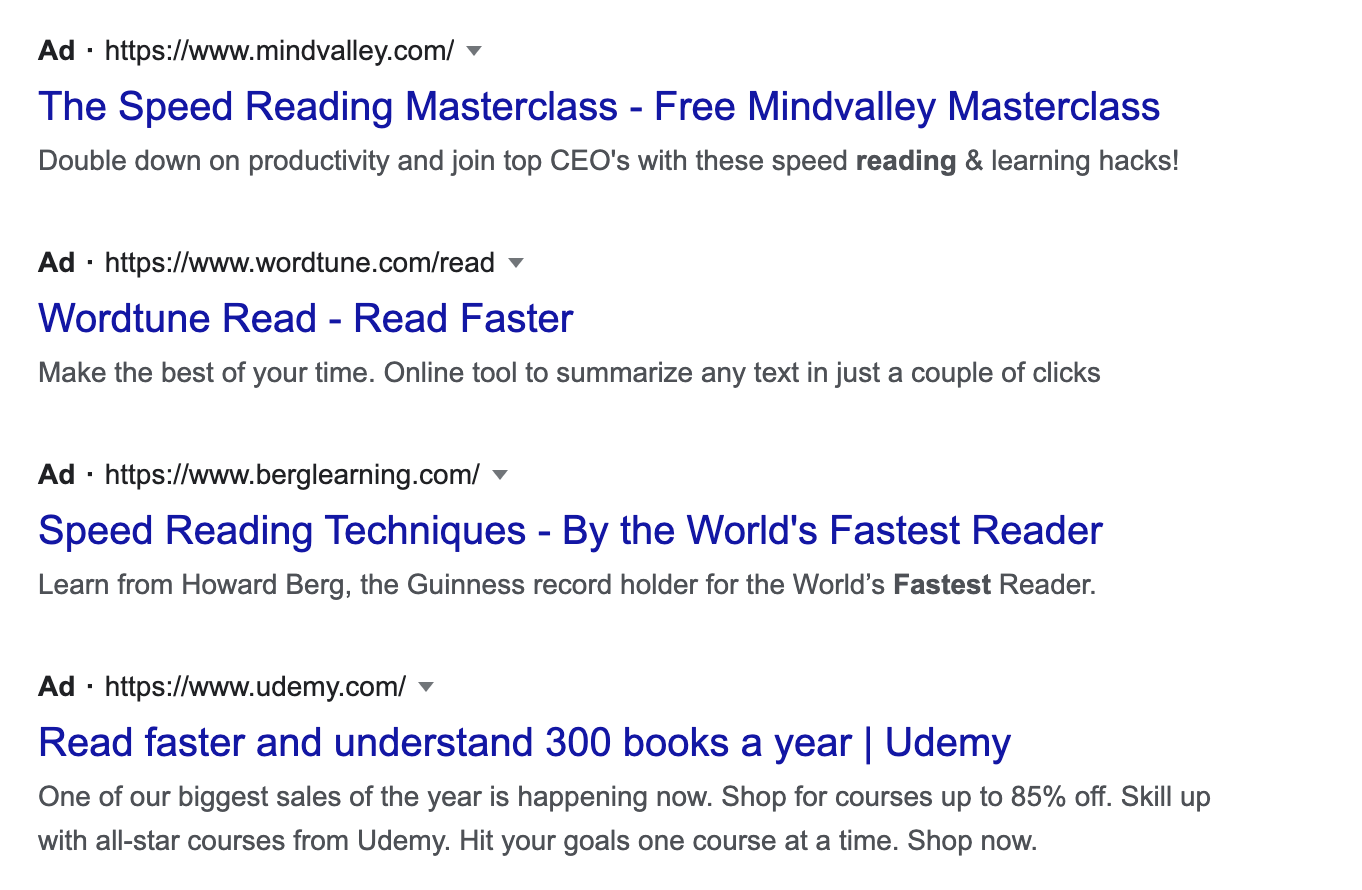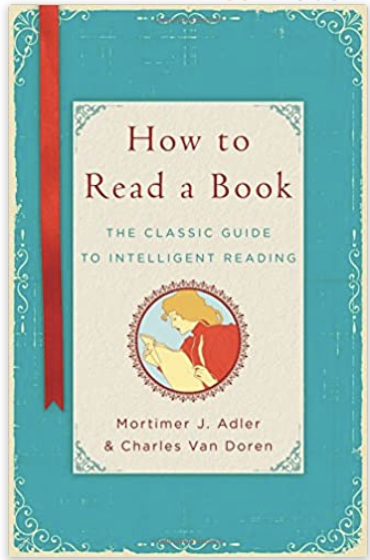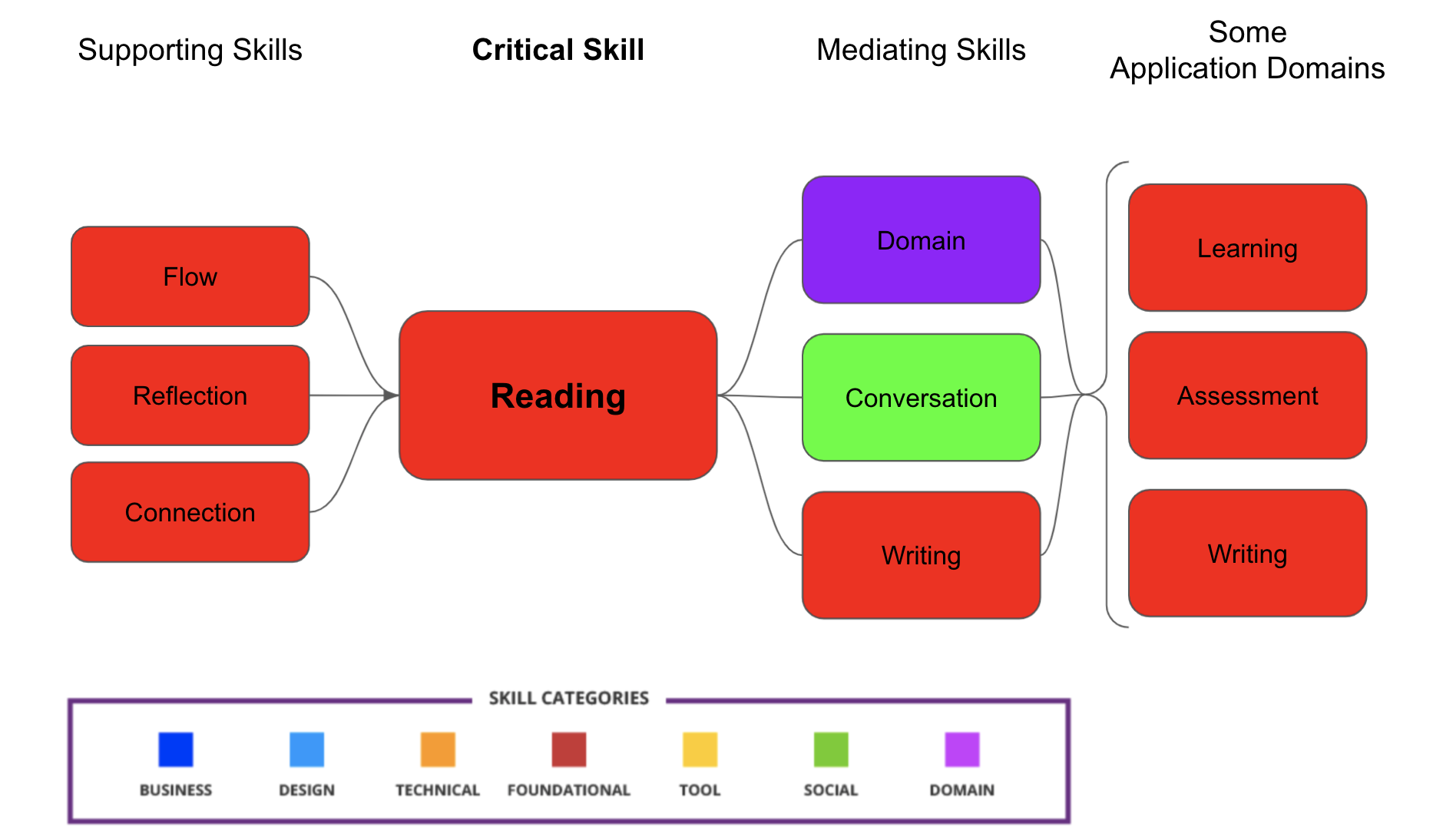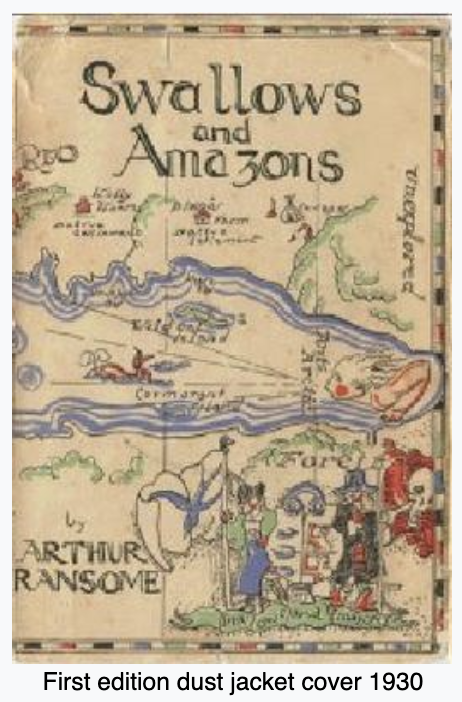Deep reading as a critical skill
Steven Forth is co-founder and managing partner at Ibbaka. See his skill profile here.
Reading is one of the most important foundational skills. When I was a child the old rhyme was still something we chanted …
School days, school days, good old golden rules days
Reading and writing and rithmetic, taught to the toon of a hickory stick.
Fortunately the hickory stick was in the past when I was in school, and its replacement, the strap, had gone by the time I was in grade four or five. But reading, reading is along with writing and mathematics one of the most important foundational skills. (This is not the only set of foundational skills of course, sketching, pattern recognition, the ability to adopt a different perspective, or to draw connections are every bit as important).
What is a foundational skill? A skill that we use to build other skills, and quite often the medium or channel through which other skills are expressed.
If reading is one foundational skill, what does it mean to have expertise as a reader?
One sometimes comes across advertisements offering to help you to read faster.
Is reading faster a way to reading expertise?
Not for me. I naturally read quite quickly and my goal is generally to slow down my reading and not to speed it up. A more nuanced approach comes from Adler and Van Doren’s classic (1940) How to Read a Book. They hypothesized four levels of reading: Elementary, Inspectional, Analytical, Syntopic. Those are fancy words. What do they mean?
Elementary reading is like it sounds. A person is able to read and understand the material and explain it to another.
Inspectional reading is what the ‘read faster’ courses generally focus on. One is able to scan a text and get a general idea of what it is about. AIs seem to be quite good at helping with this. Gisting software, that helps one get a general idea of a text, has been in use for a long time.
Analytical reading is what many people think of when they think of an expert reader. The analytical reader follows a books argument (or reasoning) and often argues back, making notes and writing reviews. Not all books are worth this, and as Ranganathan says in his Five Laws of Library Science (this from back in 1931) ‘to every reader her/his book’ and ‘to every book its reader.’ If you are for the book and the book is for you then analytical reading is worth it. Being able to to read a book in this way is part of being an expert reader.
Syntopic reading could also be thought of as comparative reading. One reads many books on a subject and thinks about how one book reflects on another. One makes the matter of the book, or rather set of books, ones own, and is able to translate from the language system in one book to that of other books.
If you are interested in these ideas, but at an inspectional reading level, Bruno Boksic has a good introduction for you in The 4 Reading Levels: Different Ways To Read Different Books (and if you like books you will find many other interesting thoughts and lists on his site).
The original cover, from 1940.
A different way to think about reading mastery is through the model of Immersion, Reflection and Connection.
Immersion is the ability to complete enter a book and its world, so that while reading the book seems more real than wherever one is. It is similar to flow (see Flow as a critical skill). This is a magical experience for those who seek it and is part of the deep joy of reading. I suspect it is also related to empathy (see Critical Skills - Empathy) and that immersive reading is one way to cultivate empathy. But immersion in the book is not enough for real mastery. One needs to surface from time-to-time to reflect.
Reflection is part of reading. It is one of the most important of the foundational skills. In reflection one stops what one is doing, looks back, and imagines alternatives and different interpretations. See Critical-Skills Reflection. Real mastery goes beyond this though. One wants to make connections between the different things one is reading, observing and doing.
Connection or drawing connections and finding patterns is an important part of reading. This is one way to think about Syntopic reading. The connections can (perhaps should) go beyond writing to what one is observing in the world around. As pleasurable as immersion may be, one needs to surface back into the world we share with others, have conversations, share ideas and experiences, take action. See Critical Skills for the Future of Work - Making Connections for just how important making connections is to the world we live in today.
Here is part of one possible skill graph for deep reading.
There are a few things to notice here.
One is that most of the skills here are also foundational skills. Foundational skills are like this, they tend to connect with, activate or enable, other foundational skills, before branching out to connect with other skills and knowledge.
Another is that Domain Knowledge is a placeholder for the many different kinds of knowledge that could be engaged depending on what you are reading about. Many books will engage more than one knowledge domain. Even when they don’t, as an active reader one can draw connections between different domains oneself.
Note that Writing, a foundational skill closely associated with Reading, shows up both as a mediating skill (a skill that helps one apply a critical skill) and as one of the applications of the critical skill of reading. These paired skills - reading and writing, making abstract and making concrete, talking and listening - are some of the most important relations in the skill graph and are something we are working to understand better.
My own most recent experience of immersive, reflective, connected reading did not come from some deep work on math or philosophy. I was on a sailing trip last week, and the book I brought along was the 1930 children’s classic Swallows and Amazons by Arthur Ransome. This is a wonderful story of children with sailboats discovering and imaging their world as they make friendships that will shape their lives. I read for an hour or so deeply immersed in the book as our sailboat rocked gently at anchor. It took me back to my own childhood, where I spent most of my summers sailing small boats. And over the course of our week sailing, I had many conversations about this book, about reading, about sailing and the imagination with my children and grandchildren who were on the boat with me.
Ibbaka posts on critical skills
Critical Skills for 2022 - First Impressions of Survey Results
Critical Skills - Deep Reading (this post)
Critical Skills - Generative Thinking (Interview with GK VanPatter)
Critical Skills for the Future of Work - Managing Trade Offs
Critical Skills for the Future of Work - What are the Critical Skills?







